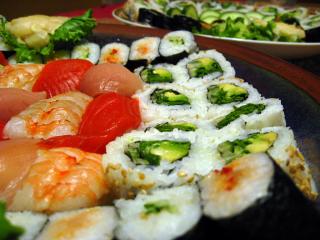If you want evidence of serious overfishing, look no further than Billingsgate Fish Market in London. Apparently, the price of a kilogram of cod has increased from £6 (C$11.87) four years ago to £30 (C$59.36) today. This is despite how fish is being brought in from ever-father away, concealing the degree to which local waters have been depleted.
Since 2000, cod has been considered an endangered species by the World Wide Fund for Nature. According to one of their reports, the global cod catch has fallen by 70% during the past thirty years and the fish could be commercially extinct as soon as 2020. The WWF report claims that:
[T]he world’s cod fisheries are disappearing fast, with a global catch that has declined from 3.1 million tonnes in 1970 to 950,000 tonnes in 2000. In the North American cod fishery, the catch has declined by 90 per cent since the early 1980s, while in European waters, the catch of the North Sea cod is now just 25 per cent of what it was 15 years ago.
This is consistent with the study in Science by Worm et al. that projected “the global collapse of all taxa currently fished by the mid–21st century.”


I stopped eating fish in August and have missed sushi ever since.
Tuna sashimi is the only kind of meat I really miss.
I hear they are now using alternative types of fish to make fish and chips. Do you know which ones?
I thought you were a vegetarian, Milan… but you have some special love for fish meat?
Yuan,
I am not a vegetarian because I dislike meat. Many forms of meat are extremely delicious. While I miss tuna sashimi the most, I also miss teriyaki beef, prosciutto in sandwiches, salmon (raw and cooked), unagi, spicy Portuguese chicken, lamb and butter chicken curry, and steak.
I am a vegetarian for moral and hygienic reasons, as detailed at length in this post.
There are no economic reasons to subsidize a fishing fleet. None. The only economic rationale for subsidies is the existence of positive externalities generated by the market outcome. A positive externality exists when a 3rd party, someone not involved in the transaction, gains from the transaction. Some (e.g., me) argue that public education generates positive externalities in the form of reduced crime, technological improvement, and etc (note: there is no self-interest involved in this argument).
I see no way that the rest of society benefits from my seared tuna consumption. I also expanded my analysis to crusted grouper with some sort of sauce, grilled shrimp on a salad, fried dolphin sandwich (lunch) and (nod to Tim) steamed crabs. Finally, I investigated the fried seafood platter: oysters, shrimp, soft-shell crab and whitefish. Unless you enjoy watching me eat this dishes, there are no positive externalities generated.*
In fact, the economic model of the fishery says to tax fishing effort or implement other policies to reduce fish catch. A tax is the antonym of a subsidy. So, those silly Europeans, much like George Costanza, are doing the exact opposite of what they should be doing.